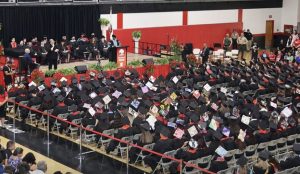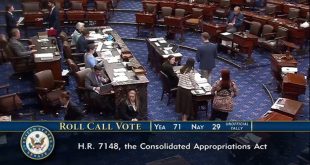 -Editorial
-Editorial
The San Diego & Imperial Counties Community College Association (SDICCCA), which represents six community college districts and more than 200,000 students, joined state lawmakers, business leaders, and students Thursday in urging the federal government to preserve funding for Hispanic-Serving Institutions (HSIs).
HSIs are colleges and universities in the United States where at least 25% of full-time undergraduate students identify as Hispanic. Designated by the U.S. Department of Education, HSIs are eligible for federal grants that support academic programs, student services, and institutional development aimed at improving educational outcomes for Hispanic and low-income students. While designed to address equity gaps, HSI funding supports all students by strengthening advising, tutoring, transfer pathways, and workforce preparation across participating campuses.
The call came after the U.S. Department of Justice announced it would not defend the program against a federal lawsuit. At a press conference at Southwestern College, speakers emphasized that HSIs provide essential support for student success and workforce readiness.
“Community colleges educate 70% of California’s nurses and 80% of its first responders,” said Southwestern College President and SDICCCA President Mark Sanchez. “HSI funding strengthens the programs that prepare our essential workforce. Weakening this support undermines California’s safety, competitiveness and prosperity.”
SDICCCA colleges collectively receive about $15 million in HSI funding. Officials said the money supports tutoring, advising, STEM labs and first-year experience programs that serve tens of thousands of students, particularly first-generation and low-income learners. Without the funding, they said, colleges would struggle to sustain the programs at current levels.
California Assemblymember David Alvarez said defending HSI programs should be a bipartisan priority, calling it an investment in equity and workforce development. Business leaders also linked HSI support to regional economic growth, noting the importance of preparing Hispanic and Latino students for high-demand careers.
“San Diego’s innovation economy is world-class, but growth is increasingly constrained by talent,” said Taylor Dunn, director of talent initiatives at the San Diego Regional Economic Development Corporation. “Hispanic-Serving Institutions are indispensable to closing that gap.”
Students also described the impact of HSI funding. Manuel Juarez Lopez, a Cuyamaca College alumnus now attending San Diego State University, said HSI programs created pathways that helped him succeed academically and athletically.
The event featured remarks from Alvarez, Sanchez, Dunn, Grossmont-Cuyamaca Community College District Chancellor Lynn Neault, San Diego Community College District Board President Geysil Arroyo, Southwestern College Board President Don Dumas, and student speakers.
SDICCCA includes Southwestern, San Diego, Grossmont-Cuyamaca, Palomar, MiraCosta, and Imperial Valley colleges, which together serve more than 206,000 students and support what the group described as the workforce backbone of the region’s $250 billion economy.


